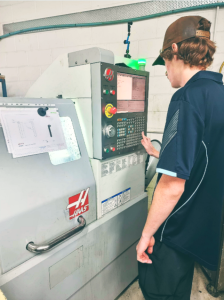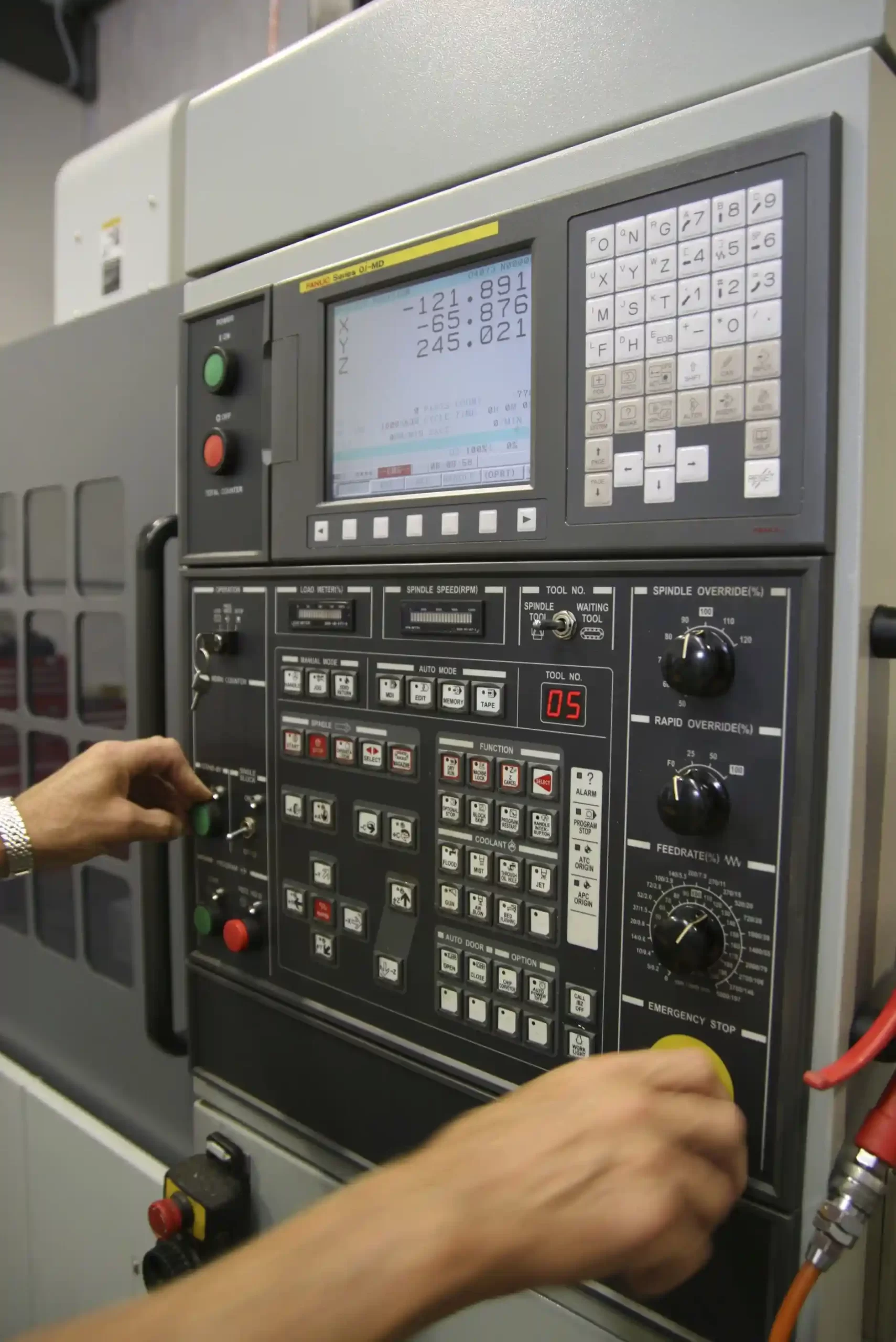Work Experience at Shine Precision

Curious about what CNC Machining is all about?
Want to learn more without a 4-year commitment?
Work experience may be for you!
At Shine, we ensure that during your work experience term, you will get hands on experience, down to earth facts about the industry, and real exposure to the entire scope of the job!
Completing a work experience term at Shine will leave you informed and prepared for your next career step.
Our Work Experience Program is a formal arrangement with your school which allows you to participate in all the different types of work activities that go on here at Shine. This short-term placement is designed to provide you with insights into our industry.
To be eligible for Work Experience Placement with Shine Precision Industries, students must be at least 14 years old, and be enrolled in an educational institution (this includes homeschool).
Talk to your school’s work experience coordinator and apply below!
During your time as a CNC Machining Work Experience Student, you will take part in all aspects of the job, including:
- Reading and interpreting technical drawings
- planning efficient machining order
- Setting up and readying machines and workstations
- Turning, milling, engraving and shaping machine parts to spec
- Monitoring machinery as it creates the final product
- Maintaining CNC machinery


FAQ
CNC machinists set up and operate a variety of machine tools to produce precision parts and instruments used in engineering and manufacturing. They use computer numerically controlled (CNC) machine tools to cut, drill and finish components.
As a CNC machinist, you would:
- translating blueprints into computer instructions for the tasks
- plan the most efficient order of machine operations for the job
- setting up CNC machines so that they can perform various tasks
- preparing raw materials before a machine processes them
- testing the machinery to check that it is running as expected
- align, secure, and adjust cutting tools and workpieces
- set and monitor the feed and speed of machines
- turn, mill, shape, and grind machine parts to specifications
- check completed parts against required quality and technical standards.
- isolating any issues
- finding solutions to issues
- monitoring machinery as it creates the desired final product
- checking the finished product to ensure it looks and operates accordingly
- maintaining the CNC machinery
- staying updated with relevant safety procedures and ensuring that the workplace is compliant
- training and managing junior CNC machinists
Machinists can learn to operate a variety of CNC machine tools that can produce many components to the same standard and specification, such as lathes, grinding machines, milling machines, drills and presses.
At Shine, we have a lot of moving parts; all of which are integral to our operation.
As a work experience student at Shine, you will take part in every part of the operation. This means that you will assist in Order Acceptance with Admin, machine programming and operation, Anodising and Chemical treatment, Quality Control and Warehouse & Dispach!
This way, not only will you see what goes into CNC Machining, but everything that happens before and after the machining to ensure we produce only the finest quality for our customers.
Occupational growth for a CNC Machinist is stable and projected to stay the same for the next five years.
According to the Job Outlook website, there will be an approximately 113,800 CNC Machinist by 2023 and estimated 17,000 job openings for the next 5 years (or 3,400 vacancies per year).
The most experienced CNC machinists can earn over $100,000 per year.
To become a CNC machinist, you usually need to gain an apprenticeship in an engineering trade and complete the relevant VET qualifications. Employers usually require junior secondary school certificate or equivalent.
You would receive on-the-job training once you start work. This would include learning how to operate various machines, including health and safety procedures
Overall employment of CNC machinists is projected to grow faster than the average for all occupations.
Machinists will be required to set up, monitor, and maintain these automated systems. As manufacturers invest in new equipment, modify production techniques, and implement product design changes more rapidly, they will continue to rely heavily on experienced machinists.
The projected growth may be offset somewhat by the closure of major manufacturing industries in Australia, such as automotive vehicle manufacturing
Trained CNC machinists have several alternative career paths to choose from. Some of the most lucrative employment opportunities can be found in the field of industrial machinery mechanics. They may also become metal or plastic machine workers, or take up employment as cutters, welders, braziers or solderers. This work is usually less technically demanding than CNC machining, as they don’t involve the use of CNC machinery.
Those looking to enter the field of industrial machinery mechanics and machinery maintenance will need to have extensive knowledge of cutting equipment in order to gain proficiency at repair and maintenance work.
